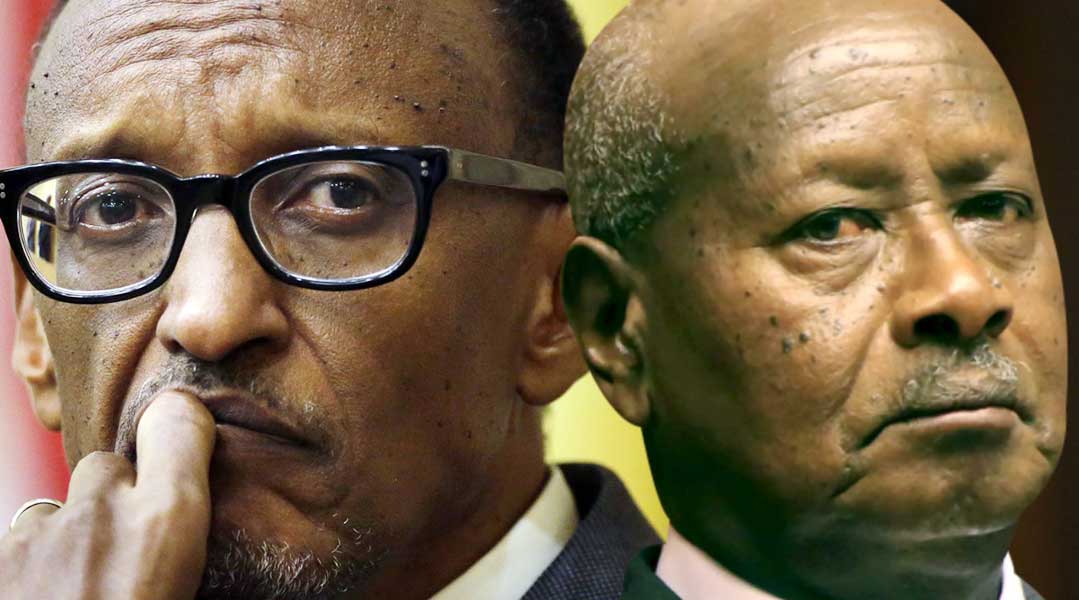An unsettling trend has been sweeping across the African continent, with several African presidents opting to retire high-ranking military officers en masse. The justification behind this mass retirement is clear: to prevent coups and safeguard the stability of their regimes. However, as we’ve recently seen in Gabon, the consequences of such actions are not without their own set of challenges and questions.
Rwanda’s Paul Kagame and Uganda’s Yoweri Museveni, both celebrated and scrutinized leaders of their respective nations, have made headlines by retiring a significant number of generals and military officers. Kagame, in particular, has retired 12 generals and over 1,000 military officers. This move, some argue, is a calculated strategy to maintain a firm grip on power and prevent any potential military challenge to their authority.
It is crucial to acknowledge the historical context in which these decisions are being made. African nations have a troubled past when it comes to military coups. The continent has seen its fair share of leadership changes driven by the barrel of a gun. Given this history, the desire to prevent coups is understandable. Leaders, like Kagame and Museveni, argue that they are taking necessary precautions to ensure political stability and economic development in their countries.
However, this approach raises several pressing questions. First and foremost, is the mass retirement of military officers the only solution to safeguarding democratic processes and stability? Retiring officers who have dedicated their lives to serving their country and possess valuable experience can have unintended consequences. The loss of institutional memory and expertise may weaken a nation’s ability to defend itself and respond to external threats.
Furthermore, it is essential to scrutinize the motivations behind such mass retirements. Are they genuinely motivated by a desire to preserve democracy and protect the nation, or do they serve to consolidate power and stifle dissent? Critics argue that these actions can undermine the principles of democracy by concentrating power in the hands of a few.
Let Us Build Your Online Success!
We are the experts in creating visually stunning and functional websites. With reliable hosting and exceptional customer support, we bring your vision to life. Join hundreds of happy clients who trust us!
Get Started Now📞 Call/WhatsApp: +256 207 800 192
The recent events in Gabon are a stark reminder that no measure is foolproof. The military’s announcement that they have seized power underscores the challenges and complexities of ensuring political stability in Africa. The situation in Gabon shows that even the most vigilant efforts to prevent coups cannot guarantee success, and it highlights the potential dangers of a weakened military.
While it is too early to draw definitive conclusions about the implications of these retirements, they should serve as a wake-up call for African nations to address underlying issues that contribute to political instability, such as corruption, economic inequality, and inadequate governance. Relying solely on the retirement of military officers may be a short-term solution that fails to address the root causes of coups and can lead to long-term consequences.
Kagame and Museveni, with their extensive experience in African politics, may appear wise in their strategies to safeguard their rule, but their actions risk perpetuating a cycle of authoritarianism and instability. True wisdom lies in building strong institutions, fostering transparency, and ensuring that power is derived from the will of the people, not the fear of the military.
African nations must resist the temptation to follow in the footsteps of leaders who prioritize self-preservation over the long-term stability and prosperity of their countries. Instead, they should invest in accountable governance, respect for human rights, and the rule of law to create a continent where leaders are chosen through free and fair elections, not protected by the retirement of generals. Only then can Africa move beyond the specter of coups and embrace a brighter future based on democracy, justice, and equality.
In conclusion, the mass retirement of top military officers by African presidents like Paul Kagame and Yoweri Museveni may be seen as a strategic move to prevent coups, but it raises significant concerns about the state of democracy and governance on the continent. While safeguarding against coups is a legitimate concern, it is crucial to strike a balance between preserving democracy and maintaining the competence of the armed forces. Africa must continue to evolve and strengthen its democratic institutions to ensure that leadership transitions occur through peaceful and legitimate means rather than by force. The events in Gabon serve as a stark reminder that there are no easy answers to these complex challenges, and African leaders must tread carefully in their pursuit of stability.
Busiinge Aggrey is a Ugandan journalist, filmmaker and CEO at The Black Examiner, Uganda’s first reader-funded opinion newspaper. A brand of Abjine Media Group. busiinge@abjinemedia.africa

